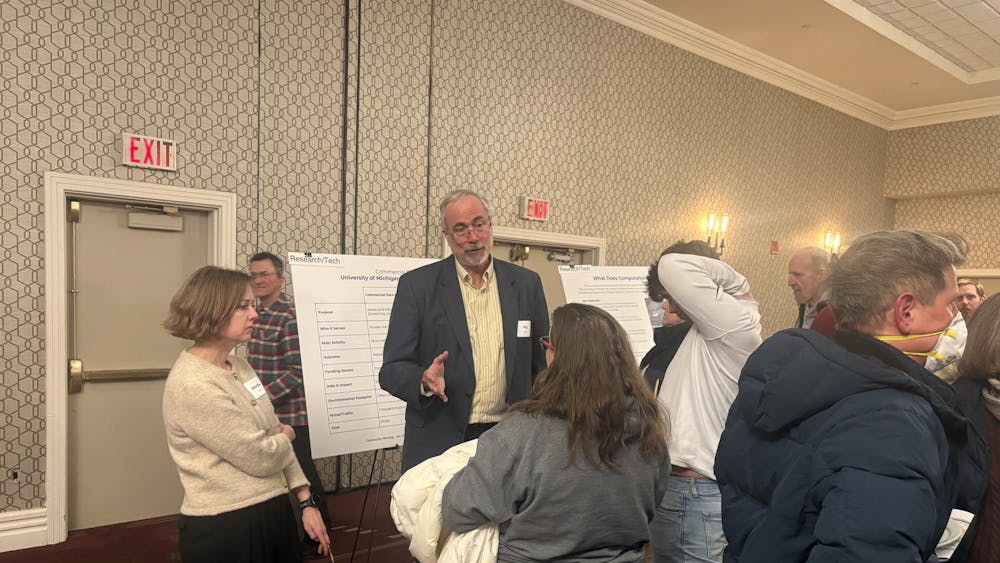Visiting professor Janice Johnson Dias held a Healthy Living Lecture at the Student Center on Tuesday to talk about healthy living.
Dias is the co-creator of the Grassroots Community Foundation, a public health and social justice organization works to improve the lives of women and girls.
Dias is a professor of sociology at the John J College of Criminal Justice in New York. According to a release from emich.edu, she "is developing research-informed, innovative solutions to the challenges facing the urban communities."
Dias conducted the lecture informally. She grouped the tables together and engaged an interactive conversation with the 15 or so attendees so “I can talk with you, instead of at you.”
Wellness, not health, was the subject of the conversation. This involves nutritional, physical, psychological, sexual and social health.
“The World Health Organization defines health as not just the absence of sickness," she said. “Because I think for a lot of people, the absence of sickness means health. But health actually means being able to be in [a] positive relationship with yourself and your environment. Such that you're able to operate at your full human potential.”
The conversation touched on the links between being unhealthy and different racial and socioeconomic backgrounds, and how being unhealthy can affect people's marriage, job and grad school prospects and more than half a dozen more topics.
Dias talked about the modern juxtaposition between your sexual health and your economic health—the paradox of humans being medically best able to have children at college age, but not usually being fiscally able to have children until much later.
Through the conversation Dias talked about the economics of health. On campus, for example, it is much cheaper and easier to get fast food than salad.
“How does it play out in terms of your environment, your health behavior and your health status?” she asked the group.
Dias’ research has found impoverished people often live in areas where fruits and vegetables are hard to come by—not to mention the exposure to pollution that's often found in highly impoverished neighborhoods.
She emphasized getting into healthy habits now, at college age, is the best place to start to live a long, healthy life and organizing for changes in the way food is available in and around campus can only happen if the students organize for it.









